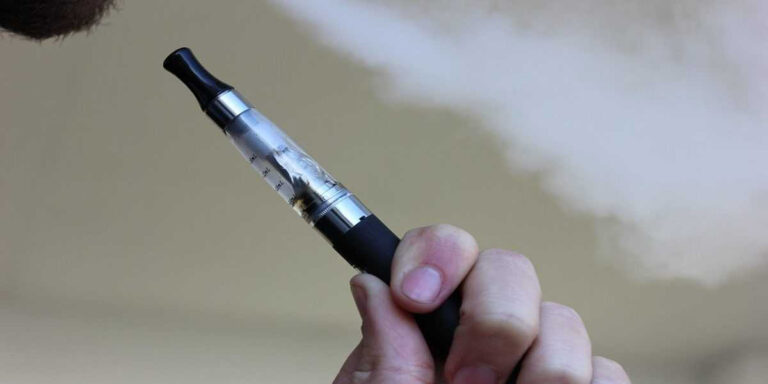Barclays analyst Gaurav Jain released a report highlighting a significant shift in the FDA’s regulatory focus, now favoring major tobacco companies. According to Jain, this is the most advantageous regulatory environment for big tobacco in the past eight years, primarily due to increased FDA enforcement on unregulated imported e-cigarettes, especially from Chinese manufacturers.
FDA Actions Supporting Big Tobacco
The report identifies four key FDA decisions that have boosted large tobacco firms:
- Increased enforcement on unregulated imported e-cigarettes, reducing competition from cheaper, unauthorized devices.
- The FDA’s decision to lift the marketing ban on Juul and re-review its premarket tobacco application (PMTA).
- FDA approvals for NJoy menthol e-cigarettes and Vuse Alto’s PMTA, solidifying their market positions.
- The potential shelving of proposed bans on menthol cigarettes and flavored cigars due to insufficient White House support, despite strong opposition from public health groups.
These regulatory actions indicate that the U.S. nicotine market is becoming more favorable to established players, allowing major tobacco companies to consolidate their dominance.
Nicotine Market Trends and Shifts
Despite the regulatory support for big tobacco, overall nicotine product sales have seen some declines. According to the latest Nielsen report for convenience store sales:
- Nicotine product sales fell by 4.4% in the four weeks leading up to September 7.
- E-cigarette sales declined by 10.5%, while traditional cigarette sales dropped by 4.7%.
However, smokeless and oral nicotine products, like Zyn, have surged, with sales increasing by 12%, reflecting a broader consumer shift toward alternative nicotine products.
Regulatory Crackdown on Unregulated E-Cigarettes
The rise of unregulated e-cigarette imports, particularly from China, has triggered a regulatory crackdown. The FDA has partnered with the U.S. Department of Justice to form a multi-agency task force aimed at tightening regulations and addressing the flood of unauthorized products bypassing FDA approval.
Market Share Changes Among Major Players
The market shares of major nicotine companies have fluctuated amid these regulatory and market shifts:
- Reynolds’ Vuse saw its market share dip to 34.6%.
- Juul maintained its 18.9% share, benefitting from the FDA’s re-review of its application.
- NJoy, acquired by Altria, increased its market share to 3.1%.
These shifts suggest that while traditional brands remain dominant, regulatory crackdowns and changing consumer preferences are reshaping the market.
Analysis of Market Transition
According to David Sweanor, an associate professor at the University of Ottawa’s Faculty of Law, the U.S. nicotine market is not shrinking but is instead shifting towards more innovative and diverse products. Sweanor commented: “The market is evolving, with strong demand for smokeless, oral, and reusable nicotine alternatives.”
This market evolution shows that while traditional tobacco product sales are in decline, newer nicotine alternatives are gaining traction, pointing to a more dynamic future for the industry.
FAQs
Why is the current FDA regulatory environment favorable for big tobacco companies?
The FDA’s crackdown on unregulated imported e-cigarettes has reduced competition, particularly from Chinese manufacturers. Additionally, the FDA’s approvals of NJoy menthol and Vuse Alto products, and the re-review of Juul’s PMTA, are allowing big tobacco companies to strengthen their market positions.
What role does the FDA play in regulating nicotine products?
The FDA regulates the sale of tobacco and nicotine products through the premarket tobacco product application (PMTA) process. It is responsible for ensuring that products meet safety standards and for enforcing regulations that target unregulated and unauthorized products.
How are nicotine market trends shifting?
While sales of traditional cigarettes and e-cigarettes have declined, the demand for smokeless and oral nicotine products has surged, with sales increasing by 12%. This shift reflects a growing consumer preference for alternative nicotine sources.
How is the U.S. government addressing unregulated e-cigarette imports?
The FDA has formed a multi-agency task force in collaboration with the U.S. Department of Justice to crack down on unregulated e-cigarettes, particularly those imported from China. This task force aims to prevent unauthorized products from entering the market and posing potential health risks.
What are the market shares of major e-cigarette brands?
Currently, Reynolds’ Vuse holds a 34.6% market share, Juul controls 18.9%, and NJoy has increased its share to 3.1% after being acquired by Altria. These brands remain dominant, but market shifts are ongoing.
Which nicotine products are driving growth in the market?
Smokeless and oral nicotine products, such as Zyn, are driving market growth, with sales up by 12%. These products offer consumers an alternative to traditional smoking and e-cigarettes, appealing to a health-conscious demographic.
What is the status of the FDA’s proposed menthol cigarette and flavored cigar bans?
The FDA had considered banning menthol cigarettes and flavored cigars, but the potential shelving of these bans due to lack of White House support is seen as a positive development for big tobacco companies, which rely heavily on these products for revenue.


















